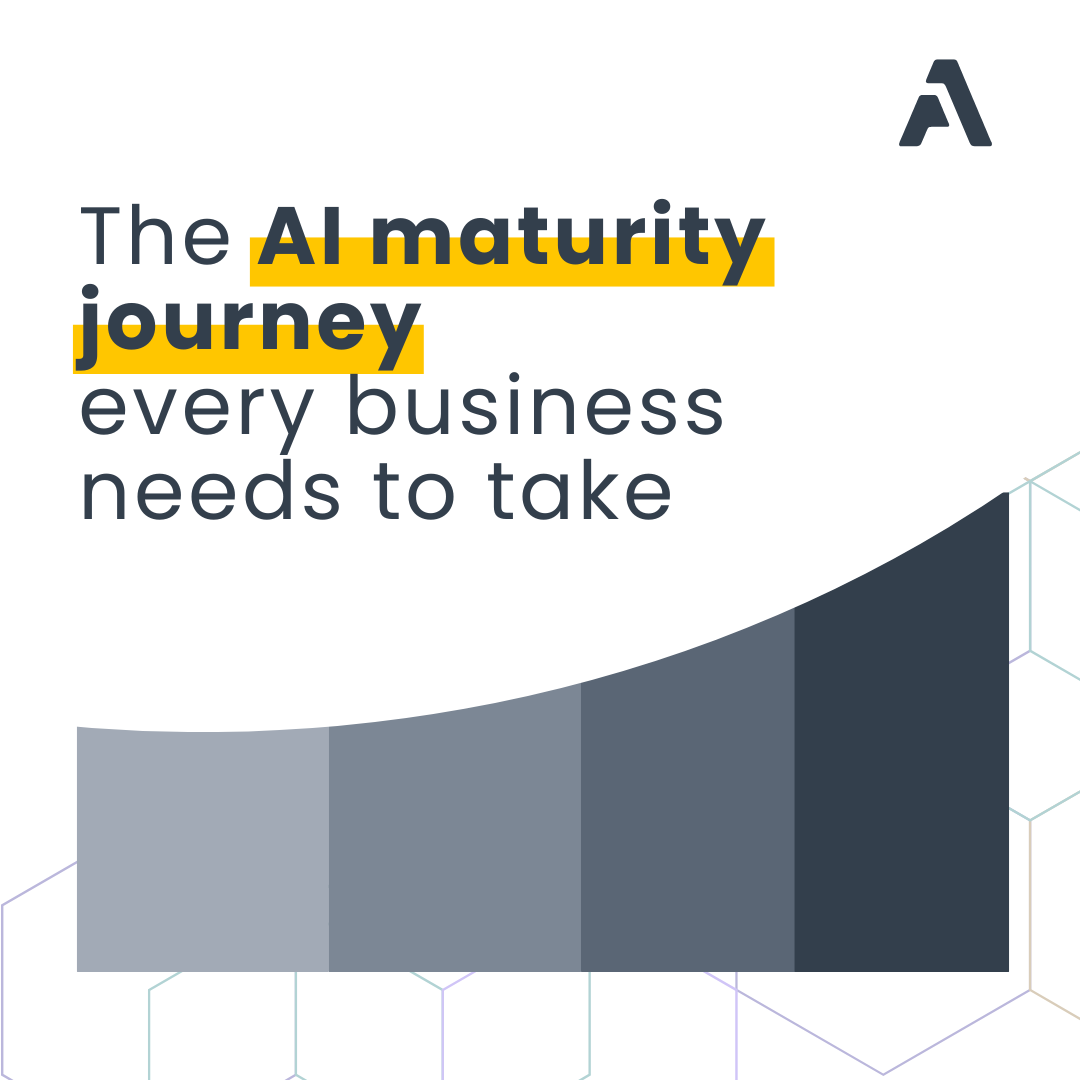
From assistants to agents: The AI maturity journey every business needs to take
AI isn’t a distant future, it’s already changing how we work. But while many organisations are racing to adopt it, most are still experimenting at the edges. Some teams are playing with prompts; others are automating emails or reports. A few are already redesigning entire workflows.
Wherever you are, the truth is the same: you don’t have to leap straight to full automation to see value. You can start small, prove impact quickly, and scale responsibly.
That’s where our AI Maturity Model comes in, a practical roadmap to help organisations evolve from early exploration to enterprise-wide transformation.
Stage 1: Assist - AI as your personal productivity partner
This is where most organisations begin. Teams experiment with tools like ChatGPT, Gemini or Copilot to summarise documents, generate content, or analyse data. The quick wins here are faster research and improved writing styles, however there are limitations too. AI is only as good as the prompts and the data behind it. AI hallucinations can be an issue here and human checks are essential to the quality of the outputs. The key is to encourage curiosity, while ensuring guardrails are in place for compliance and security.
Stage 2: Augment - Grounding AI in your own data
The real shift happens when AI starts understanding your business, not just the internet. At this stage, AI connects to internal systems like Google Drive, CRMs or finance platforms, and begins using your own data as a trusted knowledge base. This can result in more relevant, contextual, and factual responses anchored in your reality, not someone else’s.
For example, AI can help organisations create AI-driven tender assistants that can search internal documentation and generate accurate, brand-aligned responses in seconds.
Stage 3: Automate - Orchestrating workflows end-to-end
Once your data is structured and trusted, you can start using AI to automate processes across marketing, operations, or finance. AI begins to coordinate actions, not just words.
Approvals, data entry, report generation and scheduling can happen automatically, triggered by natural-language commands or event-based workflows. It’s where productivity gains start to scale, freeing your workforce to focus on creative and strategic tasks.
Stage 4: Agentify - AI that works alongside you
One of the biggest misconceptions around AI is that it is going to replace workforce. In reality, it augments it. “Agentify” is the frontier, the buzzword of 2025.
“Agentic AI” takes automation further, empowering AI systems to handle tasks independently, while staying within guardrails you define. For example, expense bots that auto-approve claims under £50 while flagging anomalies, or scheduling assistants that negotiate calendar availability across departments.
These agents are context-aware, rule-driven and accountable, augmenting human capability, not replacing it. They’re the next generation of co-workers: tireless, transparent and trustworthy.
How to move up the maturity curve
The biggest mistake is trying to skip steps. Each level of maturity builds on the last and success depends on the foundations you put in place early.
Here’s how to scale AI safely and effectively:
- Start small, think big: identify a contained use case that proves value quickly.
- Build on your data: prioritise quality, structure, and access.
- Upskill your people: equip teams to use AI confidently and responsibly.
- Architect for flexibility: avoid vendor lock-in; design for rapid change.
- Embed ethics and compliance: bake in transparency and governance from day one.
Why it matters
AI is evolving at an unprecedented rate. ChatGPT hit 100 million users in just two months, faster than any technology in history. GPT-5 now delivers 80% fewer hallucinations and near-human reasoning in complex scenarios.
The pace of change means your competitive advantage lies not in chasing every new tool, but in building an adaptable, AI-ready foundation.
Where Answer Digital fits in
We help organisations at every point on this maturity curve, from those experimenting with prompts to those embedding intelligent automation into mission-critical systems. The latest stats suggest that 95% of internal AI projects are failing to prove any value, and that it is very rarely the tech to blame.
Our focus is on:
- Data: creating the foundations AI needs to succeed
- Strategy: aligning every initiative to measurable business value
- People: upskilling teams and building trust in new ways of working
We’ve already delivered this across regulated sectors, from improving patient-flow analytics in healthcare to building insights for financial services.
AI doesn’t have to be overwhelming. You just need the right roadmap, and a partner who knows how to turn ambition into action.
Contact us for more information: answerdigital.com/contact-us/